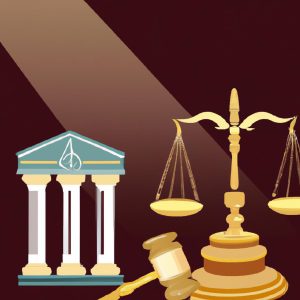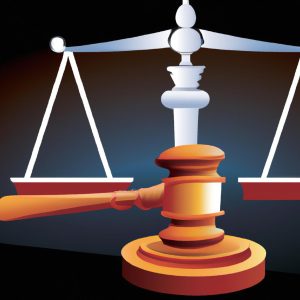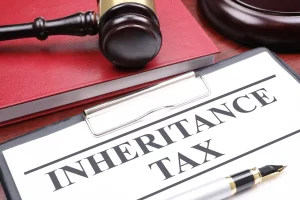As experienced lawyers specializing in estate planning, probate, and elder law, we have seen time and time again the impact of failing to create a will. In the complex world of estate administration, the absence of a will can lead to a litany of potential complications and unintended consequences. Join us as we explore the ramifications of not having a will and the legal processes that unfold in such situations. At Morgan Legal Group in New York City, we are dedicated to guiding our clients through the intricacies of Wills and trusts to ensure their assets are protected and their wishes upheld.
Consequences of Dying Without a Will
Without a will, the distribution of your assets will be determined by the state rather than your own wishes. This could result in your property going to individuals you may not have chosen, or in proportions that do not reflect your preferences. In addition, the probate process can be more costly and time-consuming without a will in place.
If you die without a will, your loved ones may also face disputes and challenges in court regarding the distribution of your assets. This can lead to strained relationships and unnecessary stress during an already difficult time. By creating a will, you can ensure that your assets are distributed according to your wishes, minimizing the potential for conflict among your family members and loved ones.

Legal Process of Intestate Succession
When someone passes away without a will, their estate is subject to the . In this scenario, the state will determine how the deceased person’s assets will be distributed based on the laws of descent and distribution.
Under intestate succession, the deceased person’s assets will typically be distributed to their closest living relatives, such as their spouse, children, parents, or siblings. The exact distribution will vary depending on the state laws where the deceased person resided. It is important to seek the guidance of a knowledgeable attorney to navigate the complex and ensure that the deceased person’s assets are distributed in accordance with the law.

Distribution of Assets According to State Laws
If someone passes away without a will, their assets will be distributed according to the state laws of intestacy. This means that the state will decide how to divide the deceased person’s property based on predefined rules. In most cases, the assets will be distributed to the closest living relatives, such as spouses, children, parents, or siblings.
It is important to note that without a will, the state may not distribute the assets in the way the deceased person would have wanted. This can lead to potential conflicts among family members and loved ones. To avoid these issues and ensure your assets are distributed according to your wishes, it is essential to create a will or trust with the help of an experienced estate planning attorney.

Importance of Creating a Will to Avoid Complications
Not having a will can lead to numerous complications and uncertainties for your loved ones after your passing. Without a clear document outlining your wishes, the distribution of your assets may be left to the laws of intestacy, which can result in undesired outcomes. By creating a will, you can ensure that your assets are distributed according to your wishes and that your loved ones are taken care of in the way you intended.
Additionally, without a will, the probate process can become more complicated and time-consuming, potentially causing stress and financial burden for your family. By creating a will, you can streamline the probate process and make it easier for your loved ones to handle your affairs after your passing. Don’t wait until it’s too late – create a will today to avoid these complications and provide peace of mind for yourself and your family members.
Q&A
Q: What happens when someone doesn’t have a will?
A: When someone passes away without a will, their assets are distributed according to the laws of intestacy in their state or country.
Q: Who decides how the assets are distributed?
A: In the absence of a will, a probate court will appoint an administrator to handle the deceased person’s estate and distribute their assets according to the predetermined laws of intestacy.
Q: Are all assets automatically transferred to the deceased person’s next of kin?
A: Not necessarily. The laws of intestacy typically prioritize immediate family members, such as spouses, children, and parents, but distant relatives may also be entitled to a portion of the estate.
Q: Can someone challenge the distribution of assets if there is no will?
A: Yes, interested parties can contest the distribution of assets in probate court if they believe they are entitled to a larger portion of the estate than what is being allocated to them.
Q: How can someone avoid the complications of not having a will?
A: The best way to avoid complications and ensure that your assets are distributed according to your wishes is to create a will and update it regularly to reflect any changes in your circumstances or desires.
The Way Forward
In conclusion, not having a will can lead to a myriad of complications and uncertainties for our loved ones after we’re gone. It’s important to take the time to plan for the unexpected and ensure that our wishes are carried out smoothly. So, whether it’s drafting a will or making changes to an existing one, let’s all take the necessary steps to safeguard our legacy and provide peace of mind for ourselves and our families. Thank you for reading.
 Title: What Happens When Someone Doesn’t Have a Will: Understanding the Consequences and Steps to Take
Title: What Happens When Someone Doesn’t Have a Will: Understanding the Consequences and Steps to Take
In today’s busy world, it’s common for people to avoid thinking about their own mortality. However, one important aspect of planning for the future is creating a will. A will is a crucial legal document that outlines an individual’s final wishes and distributes their assets after they pass away. Unfortunately, many individuals choose to avoid creating a will, thinking it’s unnecessary or intimidating. But what happens when someone doesn’t have a will? Let’s dive into the potential consequences and steps to take to ensure your loved ones are protected.
What is a Will?
A will is a legally binding document that outlines how a person’s assets and property will be distributed after their death. It is typically prepared with the assistance of a lawyer and must be signed and witnessed to be considered valid. A will also allows individuals to name an executor, the person responsible for managing the distribution of assets, and a guardian for any minor children.
The Consequences of Not Having a Will
1. State Intestacy Laws
When someone passes away without a will, they are said to have died “intestate.” In this scenario, the state’s intestacy laws will determine how the person’s estate will be distributed. These laws vary from state to state but generally prioritize immediate family members, such as spouses, children, and parents. For unmarried individuals without children, assets may go to their parents or siblings. In some cases, distant relatives may inherit assets if no closer relatives are living.
2. No Say in Distribution of Assets
Without a will, individuals lose the opportunity to dictate who will inherit their assets and how much each person will receive. This can lead to unintended consequences, such as certain family members being left out or receiving a smaller portion than desired. Moreover, without a will, there is no guidance on how assets should be distributed, which can result in family disputes over property and belongings.
3. Lengthy and Costly Legal Process
When someone dies without a will, their estate must go through probate court, a legal process that can be time-consuming and expensive. Probate court involves proving the individual’s death, identifying and appraising their assets, paying off any debts, and distributing remaining assets to their heirs. Without a will, the court will appoint an executor to handle this process, which can add to the costs and delay the distribution of assets.
4. Lack of Guardian Designation
For parents of minor children, a will is especially crucial as it allows them to designate a guardian for their children in the event of their death. Without a will, the court will determine who will assume guardianship, which may not align with the parents’ wishes. In some cases, family members may contest for guardianship, leading to a lengthy legal battle that can cause emotional and financial strain on everyone involved.
Steps to Take if You Don’t Have a Will
1. Consult with an Attorney
If you haven’t created a will, the first step is to consult with an attorney who specializes in estate planning. They can provide valuable insights, assess your assets, and guide you through the process of making a will.
2. Make a List of Your Assets
Before meeting with an attorney, make a thorough list of your assets, including bank accounts, investments, real estate, personal belongings, and important documents. This will help your lawyer draft a comprehensive will that accurately reflects your final wishes.
3. Choose an Executor and Guardian
As mentioned, one of the essential elements of a will is designating an executor and a guardian for minor children. Consider individuals who you trust to carry out your final wishes and make sound decisions on behalf of your children.
4. Update Your Will Regularly
It’s crucial to review and update your will regularly, especially after major life events, such as the birth of a child, marriage, or divorce. This will ensure that your will is always up to date and reflects your current wishes.
In Conclusion
Creating a will is an important responsibility that can safeguard your family and assets for the future. It may not be the most exciting task, but the consequences of not having a will can be far-reaching and cause unintended consequences. By consulting with an attorney and taking the necessary steps, you can ensure that your final wishes are respected and your loved ones are protected. Remember, it’s never too early to start planning for the future.





